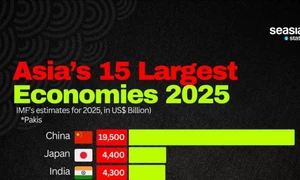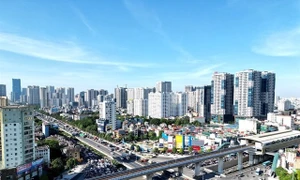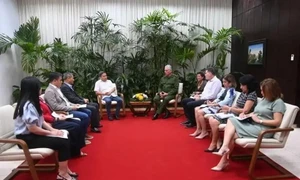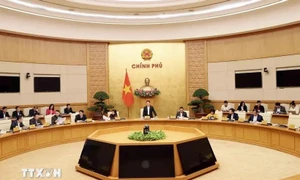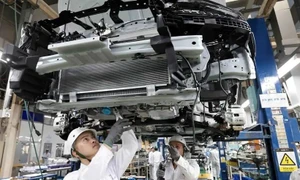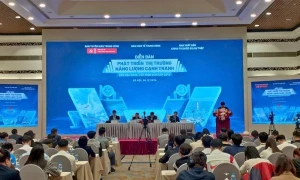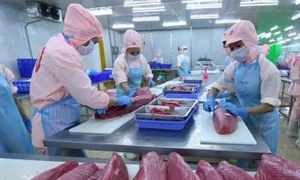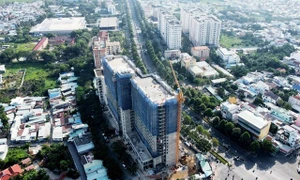According to VNA, annual foreign direct investment (FDI) poured into IPs and EZs is making up 35% - 40% of the total FDI capital inflows. The rate reaches even 70% - 80% in the processing and manufacturing industry, according to the Ministry of Planning and Investment (MPI).
The MPI said Vietnam is currently home to 403 IPs, 18 coastal EZs, and 26 border gate EZs, which have become key magnets for domestic and foreign investments. Many of them are accommodating large foreign enterprises such as Samsung, Canon, LG, Sumitomo, Foxconn, and VSIP.

Explaining why Vietnam holds this chance to attract new investment, especially in IPs and EZs, experts and international organisations said at a recent forum that aside from political stability, the economy is bouncing back quickly after the COVID-19 pandemic, with one of the fastest growth rates in the region, ensured major balances, and curbed inflation.
Many free trade agreements have also been signed and taken effect, creating optimum conditions for international investment and trading activities. Besides, thanks to the State’s attention to building infrastructure, especially expressways, and large businesses’ engagement in the work, infrastructure conditions for industrial development nationwide have been improved considerably.
However, Nguyen Anh Tuan, editor-in-chief of Nha dau tu (Investor) magazine, also pointed out certain challenges to investment attraction to IPs and EZs, including complex administrative procedures, lengthy site clearance for new IPs, issues related to law and policy enforcement, especially investment incentives and tax refunding, the shortage of high-quality manpower, and housing and social welfare for workers in IPs and EZs.
Economists said to welcome more investment, IPs and EZs need not only good infrastructure and excellent services but also assistance for investors. To do that, they in turn also need support from the Government.
Favourable conditions provided for IPs by the Government will facilitate investors, and difficulties facing IPs could also directly or indirectly affect investors, experts noted.
Deputy Minister Phuong said as the advisory body for the State management of IPs and EZs, the MPI will work with other ministries, sectors, and localities to continue overhauling mechanisms and policies and assisting investors to create an increasingly transparent and favourable business environment in IPs and EZs.






